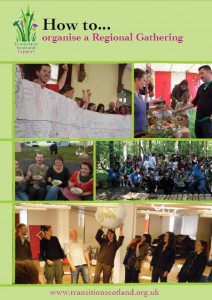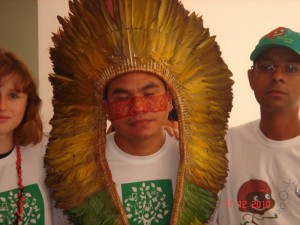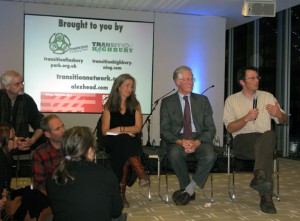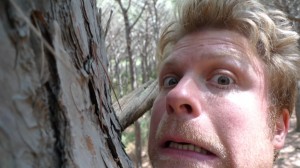Transition Culture has moved
I no longer blog on this site. You can now find me, my general blogs, and the work I am doing researching my forthcoming book on imagination, on my new blog.
Come find me at robhopkins.net
Archive for “Transition Network” category
Showing results 71 - 75 of 132 for the category: Transition Network.
17 Jan 2011
 Transition Support Scotland have just produced a really good booklet called ‘How to organise a Regional Gathering’. You can download it here. Forming regional networks was explored here recently as one of the ‘Ingredients of Transition’, and this new guide offers a detailed overview of how to make regional gatherings memorable and successful. Also, for anyone in Cornwall, you may like to be part of an event the 4th – 6th March called Reviewing and Re-imagining Transition in Cornwall, you can download a flyer about the event here.
Transition Support Scotland have just produced a really good booklet called ‘How to organise a Regional Gathering’. You can download it here. Forming regional networks was explored here recently as one of the ‘Ingredients of Transition’, and this new guide offers a detailed overview of how to make regional gatherings memorable and successful. Also, for anyone in Cornwall, you may like to be part of an event the 4th – 6th March called Reviewing and Re-imagining Transition in Cornwall, you can download a flyer about the event here.
Read more»
7 Jan 2011
 This month we’re starting off with Brazil and some very exciting news for the New Year, because, as reported here at Transition Culture yesterday, the first ever Transition favela initiative has just held it’s Unleashing!… Wonderful news indeed! Here are some great pics of the event. The community has been very busy indeed. 85 community members have participated in Transition Training and they’ve implemented all sorts of wonderful activities. Community gardens are being created in seven abandoned spaces, and a ‘Become our own Media’ team has been created which has registered all their events and has just completed a film aimed at reviving the region’s oral tradition, which was screened at the Unleashing.
This month we’re starting off with Brazil and some very exciting news for the New Year, because, as reported here at Transition Culture yesterday, the first ever Transition favela initiative has just held it’s Unleashing!… Wonderful news indeed! Here are some great pics of the event. The community has been very busy indeed. 85 community members have participated in Transition Training and they’ve implemented all sorts of wonderful activities. Community gardens are being created in seven abandoned spaces, and a ‘Become our own Media’ team has been created which has registered all their events and has just completed a film aimed at reviving the region’s oral tradition, which was screened at the Unleashing.
Read more»
20 Dec 2010
 Well now, here’s an idea. At last week’s ‘Confronting Change’ event in London (see left), a question was asked about politics, and how Transition might be accelerated in terms of mainstream politics. Polly Higgins, who is a barrister, and who is promoting the idea of international legislation to outlaw ‘ecocide’, suggested that, in the same way that certain key pieces of enabling legislation have led to great advances in the past, perhaps the time is right for a Transition Enabling Act, designed not to ban lots of things, but positive legislation that enables all that needs to happen in order for Transition to scale up rapidly over the next 5 years. This was met with much excitement, with Michael Meacher MP saying that were such legislation to exist, he would be happy to help drive it through the House of Commons. So, how about it? What we need now is your input, debate and discussion…. (read on…)
Well now, here’s an idea. At last week’s ‘Confronting Change’ event in London (see left), a question was asked about politics, and how Transition might be accelerated in terms of mainstream politics. Polly Higgins, who is a barrister, and who is promoting the idea of international legislation to outlaw ‘ecocide’, suggested that, in the same way that certain key pieces of enabling legislation have led to great advances in the past, perhaps the time is right for a Transition Enabling Act, designed not to ban lots of things, but positive legislation that enables all that needs to happen in order for Transition to scale up rapidly over the next 5 years. This was met with much excitement, with Michael Meacher MP saying that were such legislation to exist, he would be happy to help drive it through the House of Commons. So, how about it? What we need now is your input, debate and discussion…. (read on…)
Read more»
14 Dec 2010
 I do quite a lot of interviews, but nothing like the one I did with Henrik G. Dahle (see left). He calls himself “a writer, artist, director of theatre and film, anxty environmentalist and social engineer”, and he is currently doing a project called UpTrees, where every day for a year he is climbing a different tree and interviewing someone. He has climbed trees in 8 countries now, and talked to a fascinating diversity of people. He came to Totnes, we went to Vire Island and climbed a tree and chatted for an hour. It was all quite random (at one point my son and his new girlfriend walked by and, understandably, asked “Dad, what are you doing in that tree?”) and getting down again was much harder than getting up, but you might enjoy the transcript of our chat which is here.
I do quite a lot of interviews, but nothing like the one I did with Henrik G. Dahle (see left). He calls himself “a writer, artist, director of theatre and film, anxty environmentalist and social engineer”, and he is currently doing a project called UpTrees, where every day for a year he is climbing a different tree and interviewing someone. He has climbed trees in 8 countries now, and talked to a fascinating diversity of people. He came to Totnes, we went to Vire Island and climbed a tree and chatted for an hour. It was all quite random (at one point my son and his new girlfriend walked by and, understandably, asked “Dad, what are you doing in that tree?”) and getting down again was much harder than getting up, but you might enjoy the transcript of our chat which is here.
Read more»
8 Dec 2010
 We (Transition Training and Consulting) are looking for up to 10 Transition Initiatives (based in the UK) that would like to participate in this project, helping us to shape it and deliver it. Deadline for showing your interest is 17th December. The aim of this project is to help transition communities to grow social enterprises and influence existing local businesses such that they contribute to the wellbeing of that community, and society overall (including the most disadvantaged and marginalised), rather than pursuing economic growth at all costs. We have used the term ‘business’ here but include, as appropriate, all types of private, public and third-sector organisations.
We (Transition Training and Consulting) are looking for up to 10 Transition Initiatives (based in the UK) that would like to participate in this project, helping us to shape it and deliver it. Deadline for showing your interest is 17th December. The aim of this project is to help transition communities to grow social enterprises and influence existing local businesses such that they contribute to the wellbeing of that community, and society overall (including the most disadvantaged and marginalised), rather than pursuing economic growth at all costs. We have used the term ‘business’ here but include, as appropriate, all types of private, public and third-sector organisations.
Read more»
 Transition Support Scotland have just produced a really good booklet called ‘How to organise a Regional Gathering’. You can download it here. Forming regional networks was explored here recently as one of the ‘Ingredients of Transition’, and this new guide offers a detailed overview of how to make regional gatherings memorable and successful. Also, for anyone in Cornwall, you may like to be part of an event the 4th – 6th March called Reviewing and Re-imagining Transition in Cornwall, you can download a flyer about the event here.
Transition Support Scotland have just produced a really good booklet called ‘How to organise a Regional Gathering’. You can download it here. Forming regional networks was explored here recently as one of the ‘Ingredients of Transition’, and this new guide offers a detailed overview of how to make regional gatherings memorable and successful. Also, for anyone in Cornwall, you may like to be part of an event the 4th – 6th March called Reviewing and Re-imagining Transition in Cornwall, you can download a flyer about the event here.




